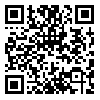1. Porth CM. Essentials of pathophysiology: concepts of altered health states. Third edition. Philadelphia: Wolters Kluwer Health/Lippincott Williams & Wilkins; 2011, pp:245–6.
2. Bagheri Lankarani K, Alavian SM, Peymani P. Health in the Islamic Republic of Iran, challenges and progresses. Medical Journal of Islamic Republic of Iran. 2013;27(1):42–9. [Persian] [
Article]
3. Allahverdipour H, Asghari Jafarabadi M, Heshmati R, Hashemiparast M. Functional status, anxiety, cardiac self-efficacy, and health beliefs of patients with coronary heart disease. Health Promotion Perspectives. 2013;3(2):217–29. [Persian] [
DOI]
4. Formiga F, Chivite D, Manito N, Osma V, Miravet S, Pujol R. One-year follow-up of heart failure patients after their first admission. QJM. 2004;97(2):81–6. [
DOI]
5. Clark PC, Dunbar SB. Family partnership intervention: a guide for a family approach to care of patients with heart failure. AACN Clin Issues. 2003;14(4):467–76. [
DOI]
6. Deaton C. Outcomes measurement. J Cardiovasc Nurs. 1998;12(4):49-51. [
DOI]
7. Holman H, Lorig K. Patient self-management: a key to effectiveness and efficiency in care of chronic disease. Public Health Rep. 2004;119(3):239–43. [
DOI]
8. Scheiner G, Boyer BA. Characteristics of basal insulin requirements by age and gender in Type-1 diabetes patients using insulin pump therapy. Diabetes Research and Clinical Practice. 2005;69(1):14–21. [
DOI]
9. National Health Priority Action Council (NHPAC). National service framework for diabetes. Canberra: Australian Government Department of Health and Ageing; 2006.
10. Oenema A, Brug J, Dijkstra A, de Weerdt I, de Vries H. Efficacy and use of an internet-delivered computer-tailored lifestyle intervention, targeting saturated fat intake, physical activity and smoking cessation: a randomized controlled trial. Ann Behav Med. 2008,35(2):125–35. [
DOI]
11. Ajzen I. From intentions to actions: a theory of planned behavior. In: Kuhl J, Beckmann J, editors. Action Control. Berlin, Heidelberg: Springer Berlin Heidelberg; 1985. pp: 11–39. [
DOI]
12. Boyer BA, Paharia MI, editors. Comprehensive handbook of clinical health psychology. Hoboken, N.J: John Wiley & Sons; 2008. 482 p.
13. Bennett S, Lane KA. Medication and dietary compliance beliefs in heart failure, West J NursRes, 2005;27(8):977–93. [
DOI]
14. Jaarsma T, Arestedt KF, Mårtensson J, Dracup K, Strömberg A. The European heart failure self-care behavior scale revised into a nine-item scale (EHFScB-9): a reliable and valid international instrument. European Journal of Heart Failure. 2009;11(1): 99–105. [
DOI]
15. Barlow DH, Rapee RM, Reisner LC. Mastering stress: a lifestyle approach (A learn lifestyle program). American Health Publishing Company; 2001.
16. Mousavian L, Hassanpour Dehkordi A, Dereis F, Salehi Tali Sh. The effect of cognitive-behavioral intervention based on lifestyle modification on left ventricular ejection fraction in patients after coronary artery surgery. Journal of Clinical Nursing and Midwifery. 2020;9(1):599-606. [
Article]
17. Alipour A, Rezaei A, Hashemi A, Yousefpour N. The effectiveness of cognitive behavioral therapy focused on lifestyle modification in improving vital signs and psychological well-being of coronary heart patients. Journal of Health Psychology. 2016;5(20):125-36. [
Article]
18. Shojafard J, Nadrian H, Baghiani Moghadam M, Mazlumi Mahmudabad S, Sanati H, Asgar Shahi M. Effects of an educational program on self-care behaviors and its perceived benefits and barriers in patients with Heart Failure in Tehran. Journal of Payavard Salamat. 2009;2(4):43–55. [Persian] [
Article]
19. Sol BGM, van der Bijl JJ, Banga JD, Visseren FLJ. Vascular risk management through nurse-led self-management programs. Journal of Vascular Nursing. 2005;23(1):20–4. [
DOI]
20. Norris SL, Engelgau MM, Narayan KM. Effectiveness of self-management training in type 2 diabetes: a systematic review of randomized controlled trials. Diabetes Care. 2001;24(3):561–87. [
DOI]
21. Lorig KR, Sobel DS, Stewart AL, Brown BW, Bandura A, Ritter P, et al. Evidence suggesting that a chronic disease self-management program can improve health status while reducing hospitalization: a randomized trial. Med Care. 1999;37(1):5–14. [
DOI]
22. Razavi M, Fournier S, Shepard DS, Ritter G, Strickler GK, Stason WB. Effects of lifestyle modification programs on cardiac risk factors. PLoS ONE. 2014;9(12):e114772. [
DOI]
23. Holland R; Battersby j; Harvey I; Lenaghan E; Smith J; Hay L. Systematic review of multidisciplinary interventions in heart failure. Heart. 2005;91(7):899–906. [
DOI]
24. Riegel B, Driscoll A, Suwanno J, Moser DK, Lennie TA, Chung ML, et al. Heart failure self-care in developed and developing countries. Journal of Cardiac Failure. 2009;15(6):508–16. [
DOI]
25. Marks R, Allegrante JP, Lorig K. A review and synthesis of research evidence for self-efficacy-enhancing interventions for reducing chronic disability: implications for health education practice (part I). Health Promotion Practice. 2005;6(1):37–43. [
DOI]
26. Stuifbergen AK, Seraphine A, Roberts G. An explanatory model of health promotion and quality of life in chronic disabling conditions. Nursing Research. 2000;49(3):122–9. [
DOI]

 ، مرضیه زراعتکار*2
، مرضیه زراعتکار*2 
 ، تکتمالسادات طباطیایی3
، تکتمالسادات طباطیایی3 
 ، علیرضا امیرآبادی زاده4
، علیرضا امیرآبادی زاده4 
 ، فائزه بهمنی5
، فائزه بهمنی5 
 ، صالح محمدپور5
، صالح محمدپور5 






